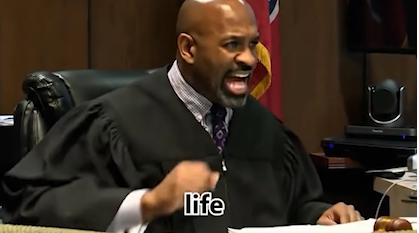Marion County, Florida — A case that has deeply affected communities across Florida reached its conclusion as Christopher Atkins, now 15, was sentenced to 40 years in prison for his involvement in a tragic 2023 incident that resulted in the deaths of three teenagers. Atkins was only 12 years old when the events occurred, making him one of the youngest defendants in the state in a case of this severity.
Overview of the Incident
The situation unfolded in late March 2023 in Ocklawaha, a quiet area in Marion County. Three teenagers — Layla Silvernail (16), Camille Quarles (16), and a 17-year-old male — were found deceased in separate locations. Their deaths prompted a large-scale investigation that drew national media attention due to the ages of both the victims and the suspects involved.
Authorities later identified three individuals connected to the case:
-
Christopher Atkins, 12 at the time
-
Robert Robinson, 17
-
Tahj Brewton, 16
Prosecutors stated that the young suspects had become involved in dangerous activities and conflicts that escalated into violence.
Sentencing of Christopher Atkins
On July 22, 2025, Atkins appeared in court to receive his sentence after accepting a plea agreement. He pled guilty to first-degree murder, armed robbery, and evidence tampering, and agreed to testify against the older co-defendants.
While the two older teens were sentenced to life in prison, the court acknowledged Atkins’ age at the time of the crime. As a result, he received:
-
40 years in state prison
-
Eligibility for sentence review after 25 years, as allowed under Florida law for juvenile offenders
This means that, depending on future evaluations, Atkins may have an opportunity for release in adulthood.
Prosecutors noted that although he was extremely young, Atkins played a meaningful role in the events of that night. His cooperation with investigators and his willingness to assist in the case were major factors in the sentencing decision.
Impact on Families and the Community
Families of the victims were present during sentencing and expressed grief that has lasted since 2023. Several spoke in court, emphasizing the ongoing emotional impact and the loss felt by the entire community.
“This is something no family ever fully recovers from,” one relative said. “We are grateful the case has reached a conclusion, but the pain never really goes away.”
The case has stirred significant public discussion about how juvenile offenders should be handled when charged with serious crimes. Many community members and legal professionals have differing views:
-
Some believe children as young as 12 cannot fully grasp the consequences of their decisions.
-
Others argue that when severe violence occurs, accountability must still be enforced to maintain public safety.
Legal and Broader Implications
Florida is one of several states that allow minors to be charged as adults for certain major offenses. The Atkins case has become part of a larger conversation about:
-
How young offenders should be sentenced
-
What level of rehabilitation is possible
-
The importance of balancing justice with long-term public safety
Legal analysts say the case may influence how future juvenile cases are evaluated, especially when suspects are significantly younger than typical defendants.
One attorney noted, “This situation shows how complex juvenile justice decisions can be. The court must consider rehabilitation while still acknowledging the seriousness of what occurred.”
Moving Forward
With sentencing complete, the case brings a measure of closure after two years of legal proceedings. While the outcome cannot reverse the tragedy, it does mark a significant step in the judicial process. Communities across Marion County continue to reflect on the incident, emphasizing the need for youth support programs, early intervention, and broader efforts to prevent similar cases in the future.
